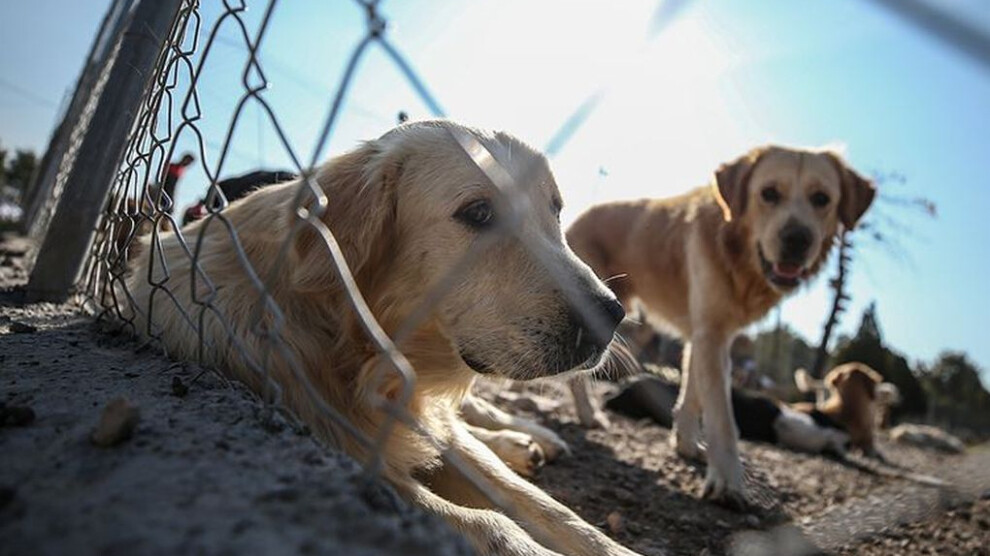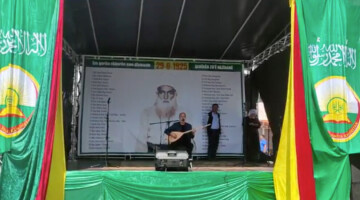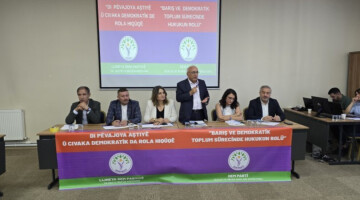The Animal Rights Monitoring Committee (HAKİM) has released its annual report on animal rights violations in Turkey in 2020, which was published by Bianet.
The findings of the report were shared with the public in an online meeting held yesterday (April 8) with the participation of Fatma Biltekin from the HAKİM, lawyer Zeynep Betül Koçaklı from the Association of Animal Rights and Ethics, main opposition Republican People's Party (CHP) Zonguldak MP Deniz Yavuzyılmaz and Dr. Lecturer Barika Göncü.
Speaking at the online conference, Biltekin underlined that the main aim behind their efforts to report and document animal rights violations is "to make it visible what the animals who are deprived of their rights and whose pains and sorrows are made invisible are going through."
Fatma Biltekin also raised concerns that even though one and a half year has passed since the release of the Investigative Commission Report, the law on animal rights has not yet been passed and the content of the draft law does not satisfy life defenders, either.
She then shared the following findings from the report:
At least 1,211,375,950 cases where animals' right to life was denied,
At least 22,735,267 cases where animals were tortured,
At least 3,36,175 cases where animals were subjected to sexual violence,
At least 1,280,153,923 cases where animals' freedom was restricted.
HAKİM's Fatma Biltekin emphasized that the figures shared in the above table show a small portion of the real picture.
Efforts of political parties
Taking the floor afterwards, lawyer Koçaklı shared information as to the political parties' engagement in the issues concerning animal rights.
According to the figures shared by her, the main opposition CHP submitted six bills, the Peoples' Democratic Party (HDP) submitted one bill and the Nationalist Movement Party (MHP) submitted one bill on animal rights in 2020, which makes a total of nine bills about the issue in a year.
As for the Parliamentary questions submitted about animal rights in 2020, Koçaklı said that a total of 39 Parliamentary questions were submitted. While 18 questions were submitted by the CHP, 10 were submitted by the HDP, six by the İYİ Party, four by the MHP and one by the SP.
While 12 of these Parliamentary questions were answered within the legal period, 17 were answered after the expiry of this period. 10 questions were not answered at all. In most of the answers to these questions, the majority of the MPs' questions were left unanswered.
The Parliamentary questions submitted by the opposition MPs were about a wide range of subjects, including the mountain goats killed as part of hunting activities and hunting tourism, the protection of animals living on the streets, the animals imported during the pandemic, the animals who lost their lives in mine explosions and abandoned animals.
'Report can be passed into law'
Speaking at the online conference, CHP Zonguldak MP Deniz Yavuzyılmaz, a member of the Parliamentary Animal Rights Investigation Commission, touched upon the important points of the report previously issued by the parliamentary commission, underlining that this report, which has been approved by all five parties, can be directly passed into law.
However, the law has not yet been made, he noted.
Addressing several problems faced in the field of animal rights within this context, Yavuzyılmaz said that they would dedicate the future law on animal rights to late animal rights defender Burak Özgüner, the Coordinator of HAKİM, due to his contributions to the legislative process.
'Families should be taught as much as children'
Taking the floor after CHP's Yavuzyılmaz, Dr. Lecturer Göncü, who has been giving a class on "Human-Animal Interaction" at İstanbul Bilgi University for seven years, said, "In that class, I am trying to share with the students the points ignored or made invisible about animal rights."
She added, "I - of course - think that families should undergo a training period as much as children. It is difficult to change it on an individual level; but I believe that changes will occur if it is made a part of the education system."













